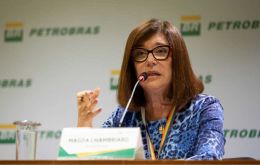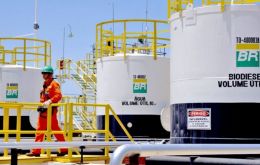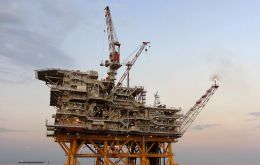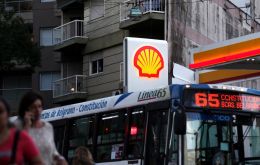MercoPress. South Atlantic News Agency
Tag: Brazil oil
-
Tuesday, November 19th 2024 - 09:19 UTC
Brazil increasingly dependent on oil exports and energy production

Crude oil has become Brazil’s main export product surpassing agribusiness and mining, according to the country’s hydrocarbons company Petrobras CEO Magda Chambriard. Brazil is not also becoming highly dependent on oil exports but also in energy generation.
-
Thursday, June 21st 2018 - 08:57 UTC
Brazil eases rules in oil industry to boost production

Brazil’s move to ease rules forcing oil producers to buy from domestic suppliers means Latin America’s top producer will be able to sustain output of 5 million barrels per day (pbd) by the mid-2020s, compared to just 3.7 million bpd under prior rules, consultancy Wood Mackenzie said in a report on Wednesday.
-
Wednesday, May 2nd 2018 - 08:31 UTC
Petrobras increases offshore production: plans an extra million bpd output next year

Brazil’s state-controlled Petrobras expects oil production to start by the end of June at its Tartaruga Verde e Mestica offshore platform, the second of seven facilities planned to be installed this year, a company executive said on Monday.
-
Wednesday, April 25th 2018 - 08:59 UTC
Brazilian company buys Shell downstream assets in Argentina

Brazil’s Raizen Combustiveis SA agreed to buy downstream assets in Argentina from Royal Dutch Shell for US$ 950 million, according to a securities filing on Tuesday. Raízen Combustiveis, a joint venture between Brazil´s Cosan SA Indústria e Comércio and Shell, will have a 20% market share in fuel distribution in Argentina.
-
Tuesday, April 24th 2018 - 08:42 UTC
Brazil poised for historic oil boom

By Mathew Smith<br />
<br />
After being caught up in major corruption scandals and suffering from what some have claimed was its worst economic downturn in 100-years, Brazil has pulled itself back from the brink. The economy commenced growing again in 2017 with gross domestic product (GDP) expanding by 1 percent and 2018 GDP growth forecast by the International Monetary Fund (IMF) to be 2.3%. -
Thursday, October 5th 2017 - 09:23 UTC
The next big offshore boom is about to happen...in Brazil

By Irina Slav for Oilprice.com - Say what you will about offshore oil and gas exploration, but it's still alive and kicking—high production costs and all. The latest demonstration of the viability of deepwater projects, even in the post-2014 oil industry era, comes from none other than Brazil.
